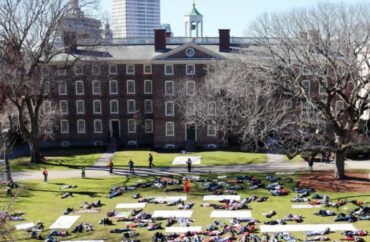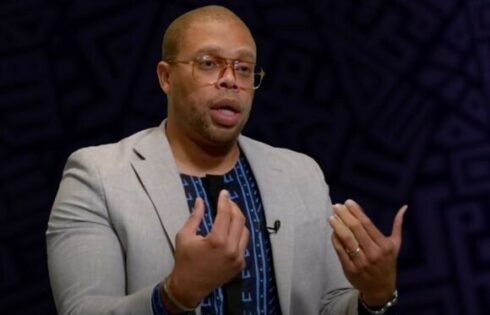
University says Rhode Island public records law ‘does not apply’ to private institutions
Two journalists represented by the American Civil Liberties Union of Rhode Island just filed a lawsuit against the Brown University Department of Public Safety for denying public records requests regarding arrests the campus police made.
The university said its police are not subject to the state open records law because Brown is a private institution.
“Whether an arrest is made during a protest or in any other context, the notion of secret arrests is anathema to a society that values transparency and accountability in the work of law enforcement,” Rhode Island ACLU spokesperson Steven Brown told The College Fix.
“If students engaging in protest are arrested for illegal conduct, the public as well as the students have a right to see the police reports justifying those arrests,” he said in a recent email.
The plaintiffs in the transparency lawsuit, which was filed last week, are Michael Bilow and Noble Brigham.
Brigham, then a reporter for the student newspaper Brown Daily Herald, requested police reports from the university in early December 2022 about a man who was arrested several times for trespassing, according to the lawsuit.
Bilow, a reporter for Motif magazine, also requested arrest reports for a Dec. 11, 2023 pro-Palestinian protest that ended with campus police intervening. The police “arrested and booked” 41 student protesters for trespassing, Brown Daily Herald reported that night.
After each plaintiff’s request was denied, they were told the campus police are not subject to Rhode Island’s Access to Public Records Act because Brown is a private university, according to the lawsuit.
The law states that public bodies or agencies must “facilitate public access to public records” unless doing so would “constitute an unwarranted invasion of personal privacy.” Any “public or private agency, person, partnership, corporation, or business entity acting on behalf of and/or in place of any public agency” can be defined as a public body, according to the statute.
MORE: University cannot hide from open records law by using foundation: judge
In January, the Rhode Island Attorney General’s Office responded to the two journalists’ transparency complaints, concluding that Brown’s police department is not a “public body” under the state law because it sends arrest reports to the Providence Police Department.
Additionally, there is “no evidence” that the municipal or state police are dependent on them to make arrests within their jurisdiction, the office stated.
In an email to The Fix last week, university spokesperson Brian Clark cited the attorney general’s finding, saying the state open records law “does not apply to private university police departments.”
Clark also said the Ivy League school is “prepared to mount a strong effort to make clear the many reasons why.”
Among the plaintiffs’ demands is for the court to declare the university police department a “public body or agency” subject to the state law. The case argues that any private agency making arrests is acting in place of a public agency, so their arrest reports should be made public at request.
When asked what implications this case could have for Rhode Island students’ freedom of the press, Brown with the ACLU told The Fix that journalists at all levels serve a “crucial function” in holding police’s actions accountable, and they can’t do their job if campus police deny access to “basic records like arrest reports.”
Outside the courtroom, the issue of open records also is being debated in the Rhode Island Senate. Senate Bill 909 currently awaits action in the Judiciary Committee after being postponed for further study on May 22.
If passed, the bill would amend the open records law to explicitly classify any “police department of any private educational institution of higher learning” employing “special police officers” and/or “peace officers” as a public body.
The Fix emailed the offices of state Sens. Gordon Rogers and Thomas Paolino on June 4 and 6 for comment regarding their reasons for co-sponsoring the amendment, but they did not respond.
MORE: Brown ends investigation, won’t discipline student journalist for admin bloat report
IMAGE CAPTION AND CREDIT: Students lay on the ground at Brown University during a pro-Palestinian protest; BrownU Jews for Palestinian Liberation/Instagram
Like The College Fix on Facebook / Follow us on Twitter






Please join the conversation about our stories on Facebook, Twitter, Instagram, Reddit, MeWe, Rumble, Gab, Minds and Gettr.